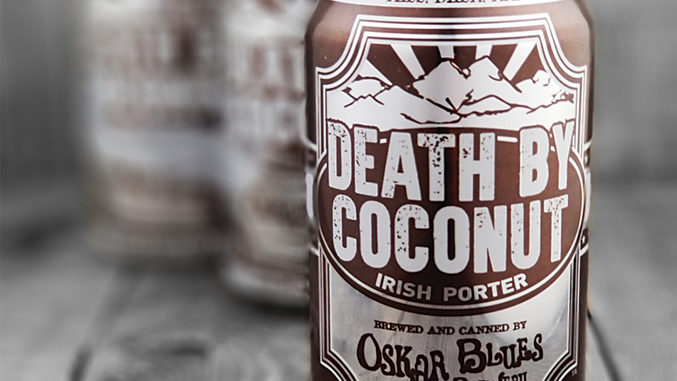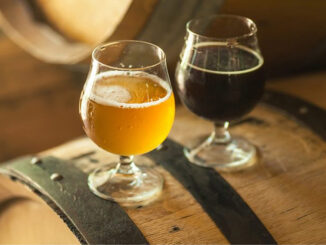
by Josh Helton
There’s a chill in the air. Winter has come. Many people are staying inside, wrapped up in blankets like human burritos. Hot drinks are becoming more and more popular as the temperatures drop, but assuming you aren’t drinking outside, a good beer can produce a similar effect. With the hop season over, many pale ales are going to step aside until next spring, and during the cold months you’re going to see more porters and stouts. If you ask any number of beer drinkers what the difference between these two styles is, you can expect equally as many different answers. Historically, porters came first and were both dark and malty as well as hoppy because they were mixed from different existing beers. After some experimentation, someone created a “more stout” version of a porter and called it a stout beer.
Fast forward to the 21st century, and some brewers make porters that are much stronger than many stouts and others have made stouts which aren’t as heavy as many porters. Basically at this point, with so many craft breweries out there experimenting on new beers and beer styles, there is really no difference between porters and stouts. The one difference that many professionals agree on is the kind of malt used to make the beer. Malted barley for porters and unmalted roasted barley for stouts is what gives the latter the more common “coffee” flavors, though there is no rule for which one to use to make each style.
One of the reasons porters and stouts are so common in the winter is because they are darker, usually heavier, and can fill you up quickly and make you feel nice and warm inside. The Black Gold Porter from Country Boy Brewery in Lexington is a solid English Porter with sound maltiness and a slight taste of bitter chocolate. It is fairly light as porters go, s
o it’s definitely one that you’d want to have more than one of and also makes a great starter if you are considering getting into dark beers. Another great porter is the Oskar Blues Death By Coconut. With 6.5% ABV, it’s a little stronger than the Country Boy but still on the sessionable end of the beer spectrum. With the flavors of coconut complementing dark chocolate and the addition of slight vanilla and coffee in the background, DBC is a well received specialty release because of its impressive balance of sweetness and maltiness without being overpowering in any single direction.
On the stout side of the coin lurks the Sierra Nevada Narwhal Imperial Stout. Narwhal has an ABV of over 10% giving it a lot of power and making it less sessionable yet no less tasty. Being very malt-forward, the taste is very malty combined with espresso coffee and some cocoa. Velvety smooth and creamy mouthfeel make Narwhal easy to drink and enjoy, but be careful because one of the better qualities of this beer is that it hides the alcohol well. You won’t taste much booze, which is nice for a 10% alcohol beer, but don’t let it sneak up on you later.
If dark beers aren’t your cup of tea (or coffee), Bell’s has a winter release aptly named Bell’s Winter White Ale. It’s a witbier, which basically means a wheat ale and is comparable to an Avery White Rascal or Blue Moon. This winter style however, has more of a spice profile and some slight dark fruitiness to it which makes it feel more appropriate for cold weather enjoyment. With the tastes of clove and lemon on top of the wheat, it’s a far stretch from a porter or stout while still working as a winter beer. Rhinegeist also has a great brew called T-Rex which is a Black IPA. In the simplest of terms, Black IPAs (or American Black Ales) are both hoppy and malty. They have the malts and color of porters and stouts while also retaining a considerable amount of hops in the flavor profile. The T-Rex specifically is a great example of this style in that if you enjoy pale ales and you either want to branch out to dark beers or you already like dark beer as well, this is the sort of beer to look out for. Whether you’re into beer or are just browsing for a holiday gift for someone else, be sure to play it safe this season and maybe leave out a little something special for Santa when he comes by.




